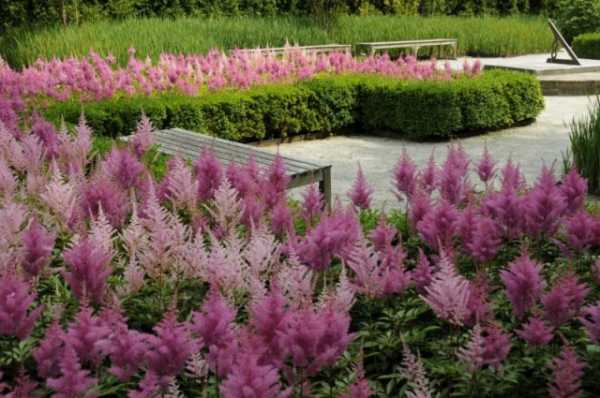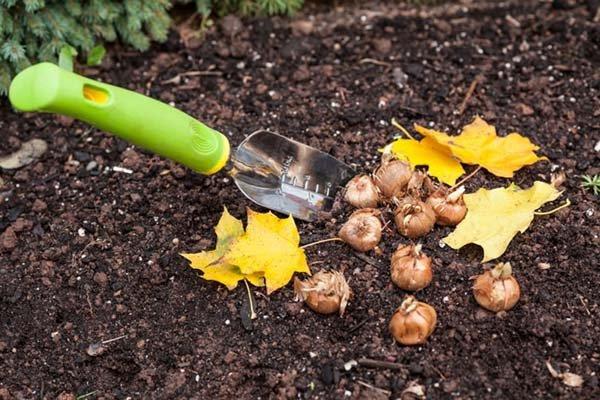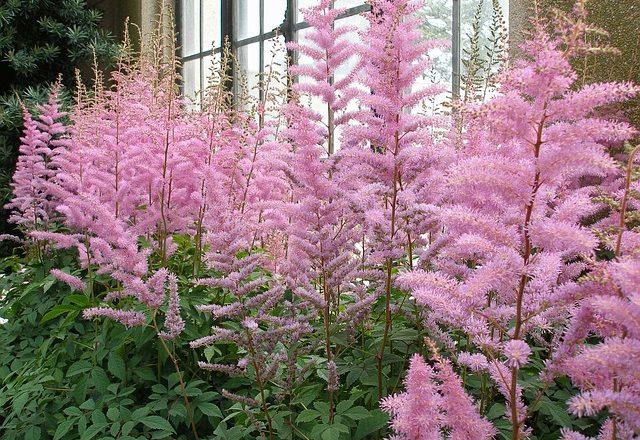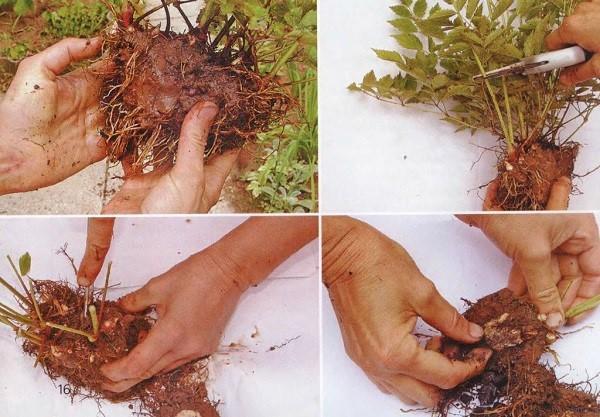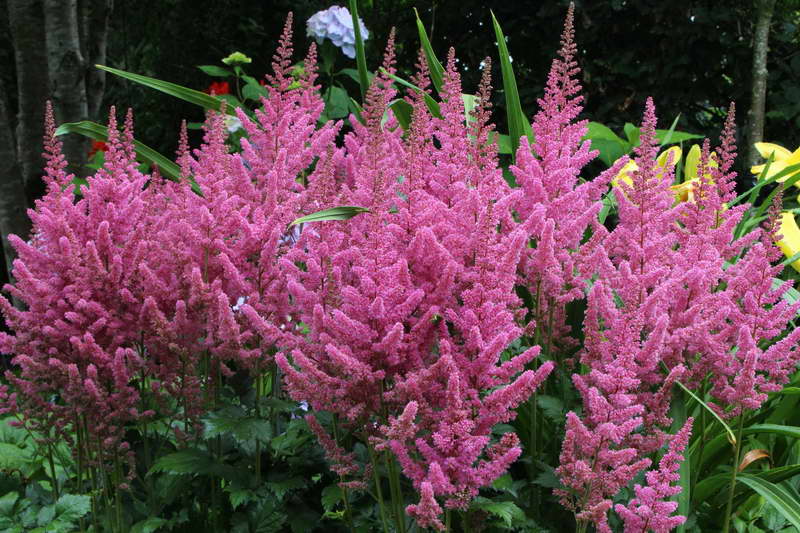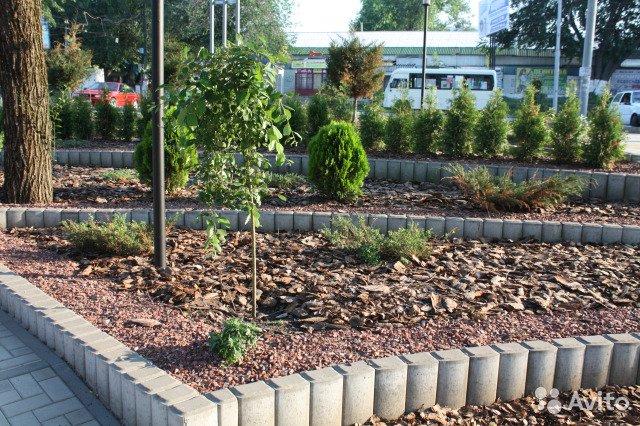When is it better to replant astilbe: in spring or autumn? The perennial plant requires a change of location every 4 years. Timing is important. In the spring at the beginning of the growing season, the survival rate of the bush is lower than when transplanting for the winter. Many gardeners replant the bush at the beginning of budding, and at the same time it takes root.
- In what cases does a plant require replanting?
- What you will need
- Materials and accessories
- Setting the stage
- Where is the best place to plant a flower?
- Timing of planting work
- When is it better to replant astilbe: in spring or autumn?
- Step-by-step technology for planting in open ground
- How to care for a flower after
- Organizing proper watering
- We'll feed you on time
- We perform formative pruning
- Preventing plants from insects and diseases
- Mulching
- The nuances of propagating a bush by division - how to plant and care for a seedling
In what cases does a plant require replanting?
Beginning gardeners grow astilbe and notice that the plant blooms worse or fades, and wonder. Is it possible to transplant an adult bush to a new location? The flower is transplanted in the following cases:
- It is recommended to change the growing location every 3-4 years;
- under unfavorable conditions;
- when the soil is depleted;
- when propagating a bush by division.
What you will need
To transplant a bush, you need to prepare materials and a new area in advance.
Materials and accessories
To carry out digging and replanting, you must have a certain device:
- shovel;
- scissors;
- mineral fertilizers;
- gloves.
Setting the stage
The selected area is dug up and all weeds and stones are removed. Form holes 15 cm deep and 2 times the diameter of the plant root. Organic or mineral fertilizer is added to each hole and watered with water.
Where is the best place to plant a flower?
For a new location, choose a shady area; it takes root well under trees and next to bushes. The flower prefers shady places without direct sunlight. The place must be sheltered from drafts, and constant moisture and warmth must be maintained.
Timing of planting work
For replanting, choose spring before the buds begin to set or autumn, when the flowers have completely faded. Some gardeners replant astilbe during the budding period; it takes root if the digging was carried out after the formation of 5-6 buds. In spring, the plant is dug up in May, and in autumn in September.
When is it better to replant astilbe: in spring or autumn?
If you replant astilbe in the spring, flowering will begin later than usual, and if survival rate is poor, the flower will not bloom at all, and may die.
When you dig up and divide the bush in the fall, the plant will bloom as usual in the spring. Over the winter, the roots will absorb enough minerals to form strong stems and inflorescences. In the southern regions, digging occurs in October.
Step-by-step technology for planting in open ground
To change the place where a flower grows, the planting technology is followed:
- The bush is dug up, capturing the roots of the plant.
- The plant is transferred to a new site.
- The plant is deepened into the prepared holes.
- It is sprinkled with soil in layers, compacting each layer with your hands.
- Cover the plant so that no roots remain on the surface.
- Astilbe is watered with water.
How to care for a flower after
After transplantation, the flower requires intensive care. It is important to ensure that the bush takes root in another place.
Organizing proper watering
In the first week, astilbe is watered intensively. One bush spends 5-6 liters of water. Watering is repeated twice a week. Next, irrigation is reduced to once a week.
We'll feed you on time
How to feed the bush in a new place? For feeding, mineral fertilizers containing nitrogen, phosphorus and potassium are used. Organic fertilizers are also suitable. When moving to a new place, the soil is fertilized. Repeated feeding is carried out in the fall, before preparing for wintering.
We perform formative pruning
To ensure that the bush is lush and does not grow sideways, it is necessary to trim the side shoots. This will not only improve the quality of the plant, but also give lush flowering. Astilbe will not take up much space and interfere with the development of neighboring crops.
Preventing plants from insects and diseases
Astilbe has strong immunity to infections, fungi and harmful insects. It is susceptible to attack when the immune system is weakened. This happens with improper care, when changing the place of growth, when the plant is overwatered and exposed to direct sunlight.
To avoid diseases, after transplantation it is necessary to carry out preventive treatment of the plant. For this purpose, insecticides and fungicides are used.
Important! Spraying is recommended before flowering begins.
Mulching
Mulching astilbe during the growing season helps retain moisture and protects against attack by harmful insects. For this, fallen leaves, straw, moss, and special materials are used.
Since the flower is a perennial, it must be mulched for the winter. It tolerates frost well, but there is a risk of damage to the roots, after which the astilbe dies. After pruning the upper shoots, part of the roots is removed and covered with fallen leaves or moss. The top is covered with a special breathable fabric.
The nuances of propagating a bush by division - how to plant and care for a seedling
After digging, the flower can be propagated. To do this, the bush is divided into 3-4 parts using scissors. It is recommended to renew the plant every 4 years. This can be understood when astilbe produces small flowers and not very abundant flowering. Daughter flowers are planted in holes prepared in advance. The distance between the bushes should be 30 cm, and between the rows 50 cm. Mineral or organic fertilizer is added to each hole, after which the plant is planted and the roots are buried with soil. Water is poured on top.
The first 2 weeks after planting, seedlings require increased watering every 3 days. Then it is reduced to 1 time per week. It is also recommended to carry out preventive treatment against pests and infections.

